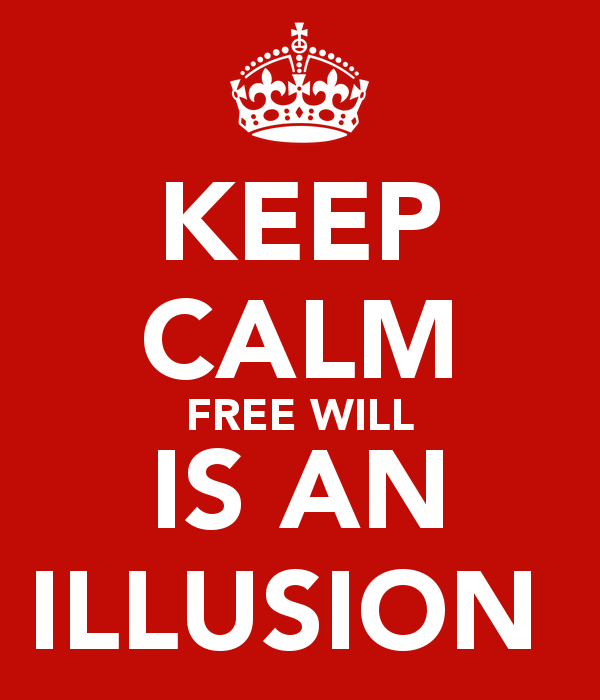The Illusion of Free Will
"Under eternalism, the question of free will and determinism becomes much less clear because it seems that everything in the universe has already happened under eternalism. It’s called the "block universe" view in physics — in which everything has, in a sense, a manner of speaking, already happened. And this would mean that what we think of as free will is, in a sense, an illusion. But I think part of the challenge there is coming to terms of what free will means. I think in reality from a neuroscience basis, what we should think of free will is simply a subjective feeling of your unconscious brain making decisions. Pain might be a sense of what happens when somebody steps on our toe. Free will is the subjective sense — the feeling we get when the unconscious brain makes the decision giving us the impression that it was the conscious mind that just made that decision."
The Illusion Of Free Will
The video is of Dean Buonomano, a professor at UCLA who has proposed a controversial proposal concerning the concept of how we view the existence of free-will as a construct of human body. Multiple Studies have shown that the will is directed by the subconscious mind, while the conscious mind lags behind.
Really, this is a much debated topic for both scientists and philosophers alike. This topic will be hard to swallow for some due to the nature of what is being said as each of us have the individual illusion of control and the thought that unseen processes within your brain are actually calling the shots can be viewed as a loss of that fundamental control.
I choose to view life in general along these lines...
We are born with a set of inherited traits we gain from a combination of of mothers and fathers DNA. Senses have been scientifically proven to be handed down generationally as was shown during the lesser-known "cherry blossom" experiment.
Now, that constitutes one factor of your subconscious mind's "programming" if there were a term, programming would be that term. The next step, and probably the most influential factor that drives your subconscious decision-making, in my opinion, are the environmental factors associated with your upbringing through adulthood. These factors are fluid and ever-changing the way in which you would handle situation, after situation that you might encounter.
We are programmed to make one set decision. No matter how hard you try to change the direction of your decision with an internal struggle between you and your subconscious mind, the conscious aspect to the mind never fully wins control as all the data derived for use in the conscious setting is limited, whereas the information available to the subconscious mind is only limited by the actual experience of the individual.
Thousands of calculations are processed through the brain at the subconscious-level, but only the most likely choices are given to the conscious mind to troubleshoot. No matter if it is a split second decision, or one that provoked a lot of thought, each time you have made a decision, your subconscious has already derived the solution. The eerie part to this dynamic is that they always align with each other. They are designed to always agree, but here...you thought you were in total control this entire time. :(
Technically, you are, at least in this society, free to make wise choices, you are free to make poor choices, but in the end, all of your choices have factors that are not even addressed in the mainstream. Statistically speaking, there is a direct correlation between poverty and criminal activity. Yet we fail to associate a rough upbringing with designing the actions of the adult when sentencing them to lengthy prison sentences.
You can teach yourself to break cycles within this life, as that is something we are all capable of. Reading new material to help aid you in changing behavior or even learning new behavior to mimic. Life is a stage, and we are all just actors, playing our roles. Be the role, you strive to become.
